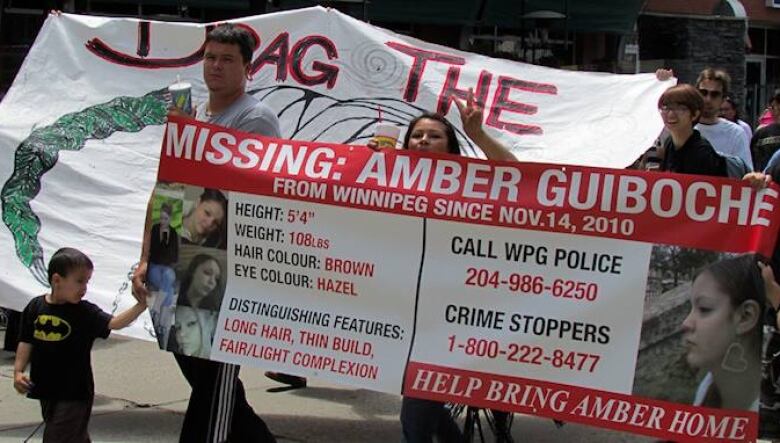Tina Fontaine: 1 year since her death, has anything changed?
4 indigenous women have been killed in Winnipeg since Fontaine, 15, was found dead in Red River

Today marks one year since 15-year-old Tina Fontaine's body was pulled out of Winnipeg's Red River.
Since her murder, six Winnipeg women have been killed. Four were indigenous.
Outside of Winnipeg, three females were killed. At least one of them was indigenous — Teresa Robinson, the 11-year-old girl who was found dead on Garden Hill First Nation.

Spillett has been doing advocacy work on missing and murdered indigenous women for at least 10 years. She said Tina Fontaine's murder was a tipping point.
-
TIMELINE: Tina Fontaine's final hours
"In the broader community I think that we saw that as kind of a watershed," said Spillett. "A year ago there was 3,000 to 4,000 people that came out to express their concern."
Her hope is with more people aware of the problem, they will start putting pressure on the government and police to make changes.
"There is such a huge transformation that has to take place so people feel safe, so women are respected, so children have their needs met."
Child-welfare system changes

Fontaine was in the care of the province's Child and Family Services (CFS) when she went missing and was found murdered. She had been placed in a downtown Winnipeg hotel — an overflow child-housing practice that has since been phased out by the province.
After her death, another indigenous teen girl, staying in a downtown hotel under the the care of CFS, was severely beaten and sexually assaulted.
That attack is what moved the province to stop housing CFS wards in hotels. A spokesperson for CFS said there have been no kids in hotels since May 11.
Spillett calls this a good start: "But still, those are small changes and those are very small."
2nd impact
She said the second impact Fontaine's death has had on society is within the indigenous community.
I believe [dragging the river] needs to be done. The water holds a lot of secrets.- Kyle Kematch, Drag the Red volunteer
"Never before have we seen such a resurgence in grassroots leadership ... making sure our citizens are protected on the streets," she said.
Drag the Red, and the reappearance of the citizen-led Bear Clan Patrol both started as a result of Fontaine's death.
Drag The Red
Since Fontaine's death, Kyle Kematch has been on the Red River almost every day, outside of the winter months.
"She [Fontaine] was so young, she was just a kid. Kids don't deserve that. Nobody does," said Kematch. "Change needs to happen with society. Slowly, I think it is happening slowly."
He is one of several people dragging the river bottom with ropes and hooks for clues that could help investigators with unsolved murder cases.
"We do the best we can," said Kematch. "The police said they would never ever search the river. For me, I believe it needs to be done. The water holds a lot of secrets."

"It helps me to know that it is being searched.... I wonder who is [in] here. Is she there? Is she not there?"
Protection and Prevention
James Favel said the Bear Clan Patrol was reborn out of tragedy.
"Tina Fontaine's murder was the 'enough is enough' moment for me," said Favel.

"There is so much more that needs to be done," said Favel. "Bear Clan is my conduit and much bolder expression of what I wanted to see come to pass in our community."
It took about nine months to get everything organized. The group consulted with police before it hit the streets for the first patrol on Aug. 13.

Favel said the group is going after johns, men who come into the community to buy sex from vulnerable women. Under the Criminal Code of Canada, it is illegal to buy sex, but not to sell it.
Favel said in the North End, the exploited women are part of the community and deserve protection.
"We have a good communication with the police. We take down the licence plates of johns and we forward that on to our contacts at the Winnipeg police and they investigate."
Favel said right now the group is patrolling four times a week, three hours at a time. In September, they will start day patrols to keep an eye on kids because it's children like Fontaine they want to protect.
"Tina Fontaine's death was a tragedy, but it inspired this movement in our city," said Favel. "Tragedy brings strength in some occasions — this is one of those occasions."

